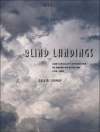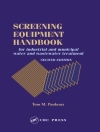Notwithstanding the challenges of a limited population size and the struggle to fund such costly forms of screen production as high-end film and television, both of these New Zealand screen industries have been the site of significant expectation, achievement and cultural influence. Whilst there is a growing body of academic work on New Zealand film and television, relatively little exists on industries, institutions and policy, which this book will address. Written by renowned experts in the field, Trisha Dunelavy and Hester Joyce, this book will provide an authoritative text on the emergence and significance of New Zealand film and television as major cultural and creative industries.
Tabela de Conteúdo
Introduction
Chapter 1: Television in the Era of Public Monopoly (1960–88)
Chapter 2: Pioneers, Mavericks and the Inception of a National Cinema (1960–88)
Chapter 3: Television, Neo-liberalism and the Advent of Competition (1988–99)
Chapter 4: Neo-Liberalism and the Consolidation of a National Film Industry (1988–97)
Chapter 5: Television after 2000: Digital ‘Plenty’ in a Small Market
Chapter 6: New Zealand Cinema and Internationalism (1998–2010)
Conclusions
Institutional and Cultural Change in Television
Institutional and Cultural Change in Film
Key Influences on New Zealand-Domiciled Feature Film and TV Drama
Sobre o autor
Hester Joyce combines creative practice in screenwriting and performance with research into screen cultures, screenwriting, screen aesthetics and national cinema. In 2015 she completed a Harry Ransom Fellowship researching final draft screenplays at University of Texas, Austin. She is the co-author of New Zealand Film & Television: Institution, Industry & Cultural Change (2011) as well as articles and book chapters on screenwriting practice and screen aesthetics.












